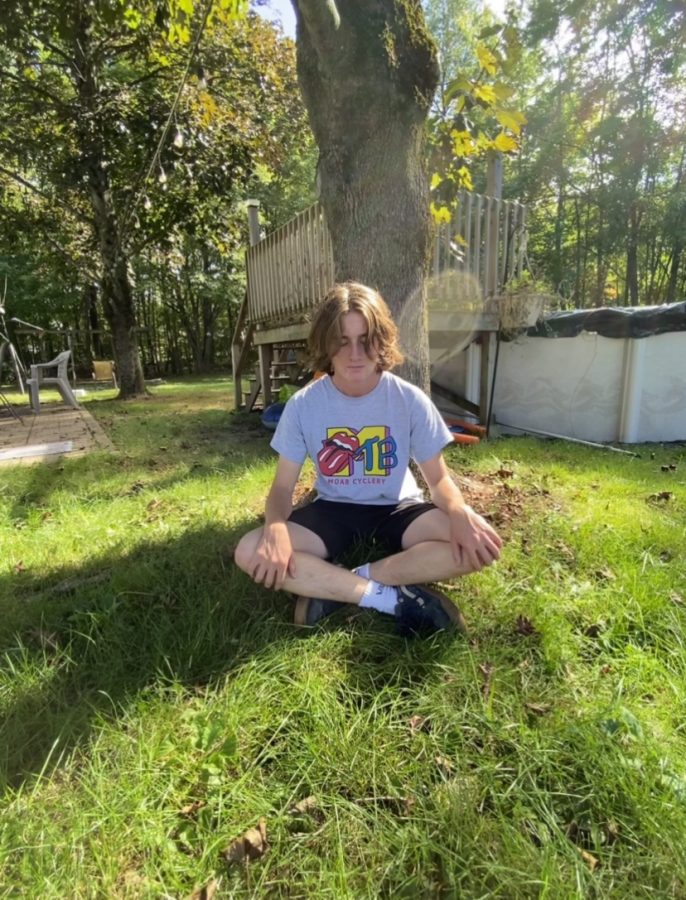Using Mindful Meditation To Ease Stress And Anxiety
September 29, 2021
Mindfulness is the basic human ability to be fully present, aware of where we are, and aware of what we are doing. Expert Jon Kabat-Zinn from Mindful expresses it as, “awareness that arises through paying attention, on purpose, in the present moment, non-judgmentally.” The past year and a half has definitely made that a lot more difficult for most people with what the world has had to go through.Stress is a big factor as to why the past year has been like that for some people. Stress can both mentally and physically drag a person down, turning them into someone completely different from who they usually are.There are many different ways you can help ease stress and anxiety. However, one of the biggest contenders now is mindful meditation.
To be able to get the full experience of meditation you first have to know what it is as well as understand it. According to The Mayo Clinic,”Meditation has been practiced for thousands of years and was originally meant to understand the sacred and mystical forces of life”. However, now meditation is most commonly used to reduce stress and to relax. During the process of meditation you focus all of your attention and energy on eliminating the negative thoughts crowding inside of your mind causing stress.
The Mayo Clinic states that, “Meditation brings you things such as a sense of calm, balance, and peace that affects your overall health and well-being.” It can also help you calmly go through your day. When you go through the process of meditation, you get rid of all the overwhelming thoughts that build up in your head everyday. A few of the emotional benefits of meditation include building skills to manage your stress, increasing self awareness, focusing on the present, gaining a new perspective on stressful situations, and reducing negative emotions. (Mayo Clinic)
There are many different types of meditation including Guided meditation, Mantra meditation, Transcendental meditation, and Mindfulness meditation. Mindfulness Meditation is based on being mindful and having an increased awareness and acceptance of being in the present moment. While participating in this kind of meditation, you expand your consciousness and focus on specific things such as the flow of your breaths. However, most importantly, you can learn to observe all of your emotions and thoughts without any judgement.(Mayo Clinic)
You can practice mindfulness anywhere: a park, the beach, your house, or a studio. It does not matter as long as you have the motivation to devote a little bit of time and space to improving your skills every day. However, if you are a beginner it is usually better to practice in a quiet setting. Meditation takes practice, so don’t judge yourself or your skills at first as that may only raise your stress. Always keep in mind that it’s very likely for your mind to wander during meditation. If you are in the middle of meditating to calm down your mind, and your attention starts to wander, take a deep breath and try to go back to that tranquility you were feeling and focusing on. If you experiment you are more likely to figure out what types of meditation work best for you. Adapting meditation to your needs is very important, there is no wrong or right way to meditate. Meditation looks and feels different for everyone, but it is a great way to take care of your mind and body.

